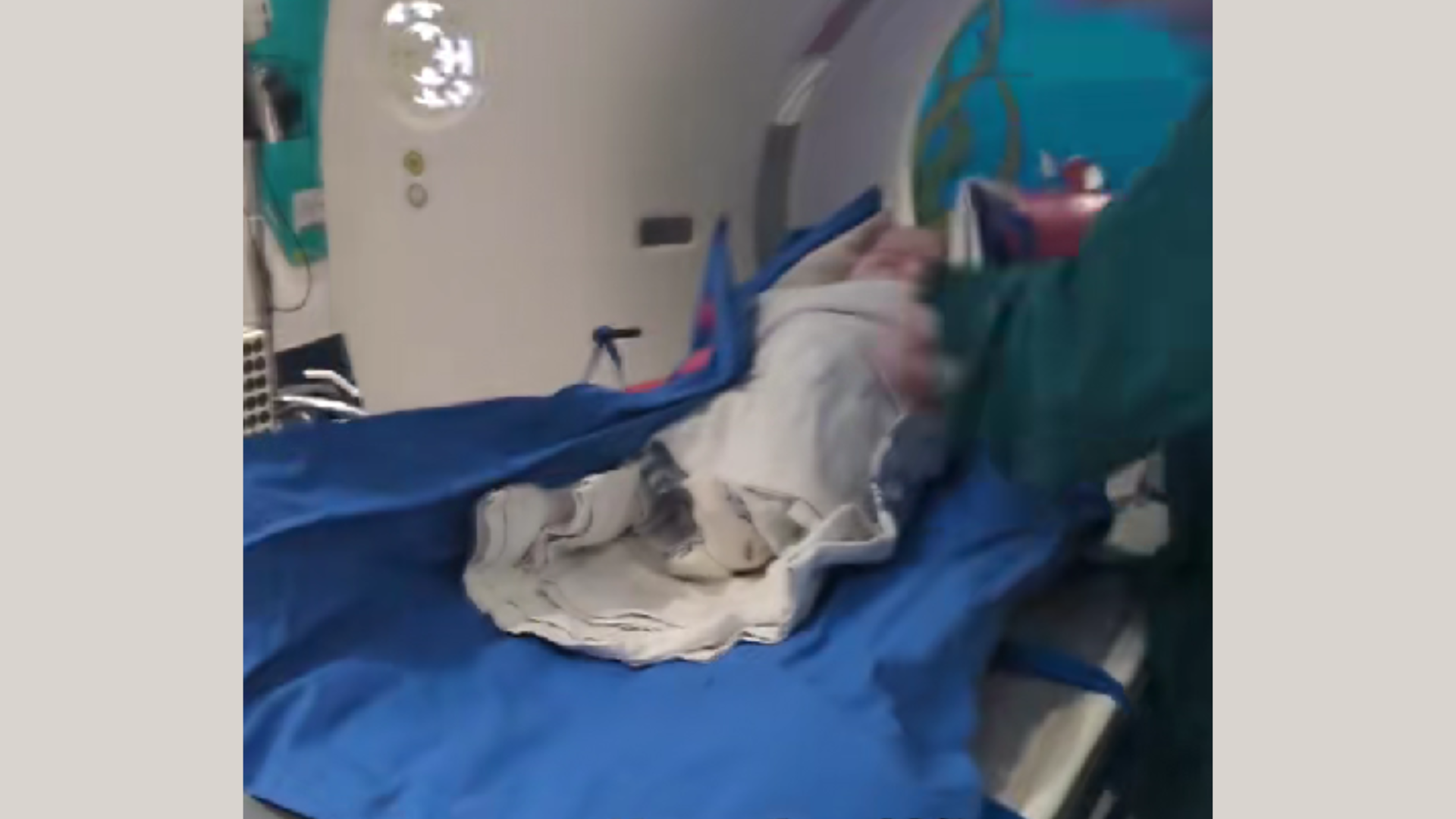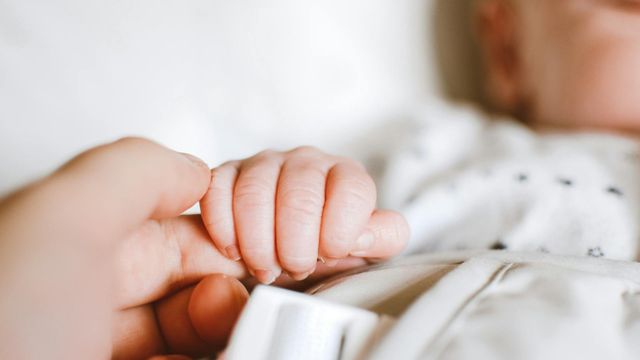Postpartum Constipation: Symptoms, Causes, & Treatment
:max_bytes(150000):strip_icc()/GettyImages-1468590063-636de2e44ef84cfe81fda23c725bd99d.jpg)
After giving birth, your body will experience an array of changes and side effects, ranging from cramping to swelling to leaking breasts—and also, constipation. While uncomfortable and unpleasant, postpartum constipation is also common—affecting approximately 52% of people after delivery. But despite its prevalence, it can still feel, well, embarrassing to discuss.
“No one talks about the fact that constipation is one of the worst complications of having a baby,” says Jennifer Wider, MD, a reproductive health expert in Fairfield, Connecticut, and author of The New Mom’s Survival Guide. “I had no idea how painful it would be, and I’m a doctor.”
We turned to experts and medical research to learn more about postpartum constipation, what causes it, and how to get relief at home.
What Causes Postpartum Constipation?
Constipation typically begins in pregnancy, but postpartum constipation in particular usually results from a combination of different factors. These may include:
- An altered pelvic floor from pregnancy and birth
- Hormonal changes
- Postpartum medication
- Dehydration
- Anxiety and stress
- Diet choices
- Subconscious fear of tearing your vaginal stitches
Postpartum constipation and hemorrhoids often occur simultaneously, so some people also may worry about irritating their hemorrhoids with a bowel movement.
The worry may not end there. “Childbirth can result in tearing, swelling, and bruising in the perineal area, causing pain and discomfort to new moms during both bowel movements and postpartum healing periods,” says Brian Levine, MD, founding partner and practice director of CCRM Fertility of New York. “Because of the pain, new moms may fear that the effort involved in a bowel movement will disrupt the healing process, which may lead to avoiding bowel movements altogether. This avoidance causes constipation.”
How Long Does Postpartum Constipation Last After Giving Birth?
Postpartum constipation will most likely show up within the first few days after delivery. How long it lasts depends on several factors, including your treatment and care plan at home, but many birthing people might deal with constipation symptoms for three to six months after having their baby. In some cases, it can last longer.
What Risks Are Associated With Postpartum Constipation?
While constipation might seem like just a nuisance, it is important to pay attention to your symptoms, as long-term struggles with bowel movements can lead to further complications. Some common issues and risk factors associated with ongoing or chronic constipation are:
- Rectal bleeding
- Hemorrhoids
- Anal fissures
- Bowel incontinence
- Rectal prolapse or fecal impaction
Given that long-term constipation can lead to more worrisome complications, it’s important to talk to your health care provider about any symptoms you’re experiencing. Additionally, be sure to seek medical care right away if you experience rectal bleeding, persistent fatigue, rapid weight loss, abdominal pain, vomiting, bloating, a racing heart, or constipation that lasts longer than two weeks.
What To Do for Postpartum Constipation Relief
Fortunately, there are many ways to manage constipation at home, including diet and lifestyle choices that can help promote healthy bowel movements. Below are some ways you can try to relieve constipation on your own—but be sure to consult a health care provider with any questions or concerns about your symptoms.
Fill up on fiber
Consistently eating beans, bran cereals, whole grains, fruits, and vegetables can prevent and relieve postpartum constipation. The average person needs 25 grams of fiber daily, but most people get only about 15.
Studies show that eating two or three prunes is as helpful as taking a laxative. Not only are they high in fiber (1 cup provides 12 grams), they also contain sorbitol, a sugar alcohol that has a natural laxative effect.
Drink lots of water
Breastfeeding can actually be a sneaky culprit for postpartum constipation. When you’re nursing, some of the water that would normally go straight to your colon—to help food keep moving—gets used for milk production. Without the water it needs, your colon soaks up the fluid left in your food waste, resulting in harder stools that won’t budge.
So if you’re breastfeeding, aim for 10 to 12 glasses a day instead of eight, says Christy Dibble, DO, director of the Center for Women’s Gastrointestinal Health at Women & Infants Hospital of Rhode Island, in Providence.
This advice is also important if you’re upping your fiber intake. Without extra water, fiber can actually make constipation worse and cause gas, bloating, and reflux.
Get exercise
New parents can spend a lot of time indoors and seated while snuggling a new baby. And while bonding with your baby is essential, so is getting on your feet and moving. “Physical activity increases blood and oxygen flow to all organs, including the gut, which is why sedentary people have higher rates of constipation,” says Toyia James-Stevenson, MD, a gastroenterologist at IU Health in Indianapolis.
It’s hard to fit in exercise when you’re sleep-deprived and on parent-duty, but you don’t have to run a marathon to see results. Pushing a stroller or a playground swing counts, as does gentle stretching. Your goal can be getting off the couch as often as possible for postpartum constipation relief.
Take a supplement
If you can’t relieve your postpartum constipation by moving more and drinking lots of water, it may be time to try a simple over-the-counter (OTC) option. “Many OTC choices are fairly benign and very therapeutic,” says Dr. Wider.
Most people begin with a bulking agent (essentially, fiber in powder form). Think Metamucil or Citrucel. However, it’s a good idea to run any medications by your health care provider before you start, as a precaution.
“I have my patients take one quarter of the recommended dose then slowly increase it to the full amount over a few weeks,” says Dr. Dibble. “If they build up gradually, they avoid the bloat and abdominal pain that sometimes come with the extra fiber.”
Fiber supplements are easy to consume and are “designed to provide a concentrated source of fiber that is not always possible to consume naturally through diet,” says Dr. Levine.
What’s more, fiber supplements can provide even more positives. “Many fiber supplements are prebiotic, such as Bio.me’s Daily Prebiotic Fiber, which means they act as food for the good bacteria in the gut. Prebiotics are essential for maintaining gut health and promoting the growth of probiotics in the body,” explains Dr. Levine. In turn, “fiber supplements can help rehabilitate an unhealthy gut, reduce inflammation, improve digestion, and combat constipation.”
If fiber supplements aren’t working for you, though, you can try a gentle laxative, which draws extra fluid into the intestines. If you take a postpartum constipation laxative, be sure to drink plenty of water. Stool softeners, such as Colace, are also effective and safe. Avoid stimulant laxatives that contain senna or cascara, as they can become ineffective over time, and again, be sure to consult your health care provider first.
Improve your potty posture
Sitting on the toilet may seem more civilized, but squatting is the most effective way to do your business and relieve that postpartum constipation. When you sit or stand, a muscle called the puborectalis creates a kink in your colon that keeps stool from sliding out. (This is helpful at work and during carpool, but not when you’ve finally managed to find five minutes alone in the bathroom.)
Fortunately, lifting your feet—so that your knees are higher than your pelvis—will relax the puborectalis muscle and straighten the kink, giving your poop a smoother route out, says Dr. James-Stevenson. When nature calls, try sitting on the toilet and putting your feet on a step stool.
Time it right
The large intestine likes a regular schedule. To prevent postpartum constipation, note the time of day when you typically feel the urge and have a snack or meal around then, along with a little coffee or tea. No caffeine? No problem. A cup of warm water or herbal tea can also be effective.
Breathe through it
When you’re trying to poop, take it slow and don’t strain. “Spend less than five minutes or so on the toilet and try some deep breathing. The pelvic floor is actually a respiratory muscle,” says Carrie Pagliano, DPT, founder of Carrie Pagliano Physical Therapy, in Arlington, Virginia, and an American Physical Therapy Association spokesperson. “When you inhale, the pelvic floor drops, and when you exhale, it rises.”
Slow, deep breathing introduces a nice gentle movement that can push poop down the road, and it helps you rediscover your pelvic muscles if you’re having trouble with sensation. Making a low humming sound or slowly repeating a mantra also helps some individuals with postpartum constipation.
When To Seek Help for Postpartum Constipation
In some cases, it may be necessary to see a health care provider or physical therapist for relief from postpartum constipation. If leaking urine or painful intercourse accompanies your postpartum constipation, for example, or if you don’t experience the urge to go, the muscles and nerves in your pelvis may have been damaged or traumatized during pregnancy or childbirth.
You can ask your health care provider for a referral to a physical therapist who specializes in pelvic floor health, or find one on your own at the American Physical Therapy Association. A physical therapist will do an assessment of your pelvic bones, muscles, and nerves, then teach you exercises that can help facilitate a bowel movement.
If you’re experiencing a chronic mix of bloating, cramping, gas, or abdominal pain, or have alternating bouts of diarrhea and constipation, you could have irritable bowel syndrome (IBS), a disorder that affects 10% to 15% of the population. Doctors don’t know what causes IBS, but potential culprits include intestinal muscle contractions that may be too weak or too strong, inflammation, changes in gut bacteria, and poorly coordinated signals between the brain and the intestines.
While postpartum constipation can feel uncomfortable, unpleasant, and downright embarrassing, it’s important to know that it affects a lot of birthing people out there, and is generally very common. But make sure to seek help for any lasting symptoms.
link




:max_bytes(150000):strip_icc()/asian-sick-little-girl-lying-in-bed-with-a-high-fever-952683074-5b5b784046e0fb005027ca13.jpg)

